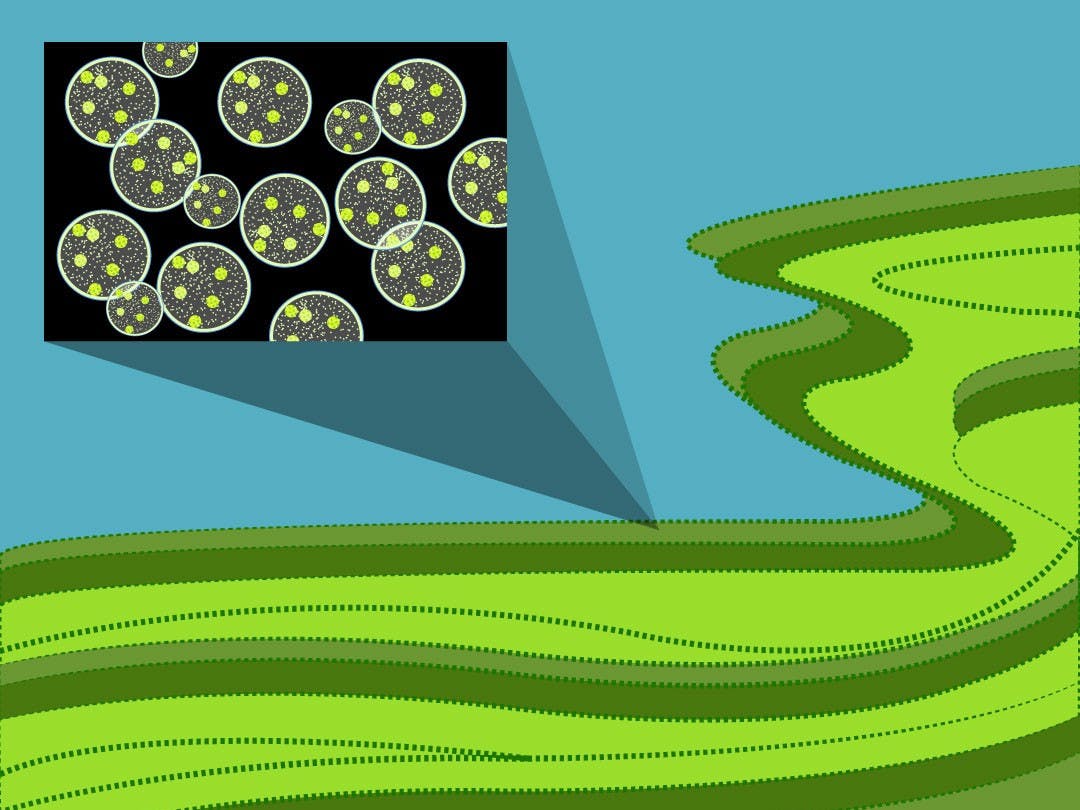Michigan State researchers are testing algae hibernation to optimize the plant's ability to be used for biofuel production.
Using algae to produce biofuels is a question of economic feasibility, Tomomi Takeuchi, a research assistant in MSU-DOE Plant Research Laboratory said. Algae produce oil as a response to adverse situations such as starvation, but when they are experiencing starvation, they are unable to split and grow, Takeuchi said.
Algae can be used to create biofuels because of that oil – the dilemma is that when they are stressed from starvation they don't grow to create more algae, she said.
"There’s a lot more to figure out in terms of actually solving the issue, but I think that we are getting a better understanding of how growth of the algae and oil accumulation processes are coordinated and coupled together," Takeuchi said. "That sort of knowledge is essential in order to go ahead and be able to make biofuels a plausible alternative to fossil fuels, for example."
MSU researchers are looking into a protein called Compromised Hydrolysis of Triacylglycerols 7, or CHT7. To try to slow algae hibernation, researchers removed CHT7 from a strain of algae.
"It’s not only important to just get oil, but in order for it to be affordable and economically feasible, you have to consider both the growth of an organism, as well as the accumulation of the volume product, in this case oil, and a lot of the time, the organism can't do both," Takeuchi said. "It can either grow and not accumulate oil, or it will stop dividing and growing but it will accumulate oil. So essentially, the important part is trying to understand how these two seemingly opposite reactions in the cells are coordinated so you can come up with a better strategy ... or a compromise between growth and accumulation of something that you want."
The research team worked to reinsert CHT7 into mutants to see what reverses the defects of hibernation. They also look into the complexity of proteins.
"In this mutant algae, they accumulate oil normally, but essentially, they can't really stop dividing in response to starvation cues," Takeuchi said. "The problem that people often talk about in terms of biofuels is how you can optimize the growth of the algae and the accumulation of sought after molecules like oil, so people are trying to understand how cell division and the accumulation of oil is correlated and that’s what we’re trying to understand using this mutant."
Support student media!
Please consider donating to The State News and help fund the future of journalism.
Discussion
Share and discuss “MSU researchers aim to optimize algae biofuel production” on social media.








